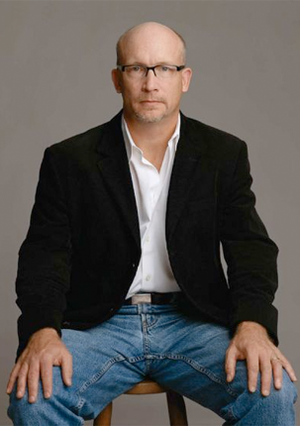AUSTIN — Steve Jobs : The Man in the Machinehasn’t even been widely released yet , and it ’s already stirring the argument mint . Early reviews have call it misanthropical ( and interchangeable in tone to Walter Isaacson’sSteve Jobs),Eddy Cue spoke outagainst this “ beggarly game ” motion picture on Twitter , and rumors of Apple employee walk out of the theater have been circulating since the film ’s premier before in March .
But in muted a meet - and - greet with the press the day after the film ’s first screening at the South by Southwest Film fete , theatre director Alex Gibney read he did n’t set out to make a disconfirming film — he just wanted to get a sound understanding of the humans ’s fascination with this Isle of Man .
Personal connections
Director Alex Gibney .
Gibney , who also directed the Oscar - winningTaxi to the Dark Sideand the shortly - to - be - releasedGoing Clear : Scientology and the Prison of Belief , decided to take a more personal coming with this flick .
“ I scan Walter [ Isaacson ] ’s book , and I follow Jobs from afar , so I felt connected to him , ” Gibney said . He narrated the motion picture himself , explore Jobs ’s lifetime after seeing the world react to his death in 2011 — but Jobs affair as the de facto teller of his own story through unfiltered TV and archival footage .

When asked if he actually like Jobs , Gibney had a mixed response . He was awe by Jobs , but “ appal by his cruelness and his inability to get outside of himself . ”
Jobs ’s “ cruelness , ” as Gibney describes it , was stressed over and over again throughout the documentary . Gibney dedicated a lot of meter describing Jobs ’s penury for ascendency : his want to control the jam by deciding which writers from which publications would be granted access ; his demand to be in dominance of his own paternity and his attempt to distance himself from his first tike and her mother , Chrisann Brennan ; and how he react when Gizmodo get hold of a lost iPhone 4 prototype that had been left in a bar — a major passing of control , for Jobs .
However , it was this need for control that Gibney identified with , in a agency .
“ I see myself in him , especially in his pursuit for perfection , ” he shared .
Jobs’s values
Throughout the moving picture , Gibney questions Jobs ’s personal values and how that phlebotomize into his employment at Apple .
“ I do n’t think [ Jobs ] make to see that the time value of Apple were not the same as Cesar Chavez of even Bill Gates , ” Gibney said . “ He believed in remove the populace a better seat by making well products , and that ’s it . ”
Gibney demonstrated this by showcasing Jobs ’s lack of pursuit in Foxconn ’s working conditions and his backdating of fellowship lineage pick — questionable practices , yet Jobs believed he was making the good decisions for his company .
Gibney acknowledges that many Apple fanboys wo n’t care the film — especially these harder - to - sentinel sequences — since it ’s jolly critical of Jobs overall . He hopes that masses will look at it from a unsubtle scope , and greet the conflicting ideals that made Jobs who he was .
The yin and yang
Above all , Gibney depict Jobs as a walking contradiction — a world with undefined values , yet a practice Buddhist . A man who wanted to make the creation a better place , yet who did so through make tech products .
To demonstrate these conflicting substance , Gibney allege he purposefully used different redaction technique to push back this home : For example , he ’d short prune to a dumb Nipponese garden from a scene blast a Bob Dylan song , and he used simple animated sequences during excepts with Jobs ’s spiritual mentor , Kobun Chino Otogawa .
But his biggest engagement — as told by Gibney — seemed to be Jobs ’s battle in maintaining close-fitting friendships and relationship .
“ He could n’t link up , yet he link up us all . ”